Astrology and Astronomy: An Overview
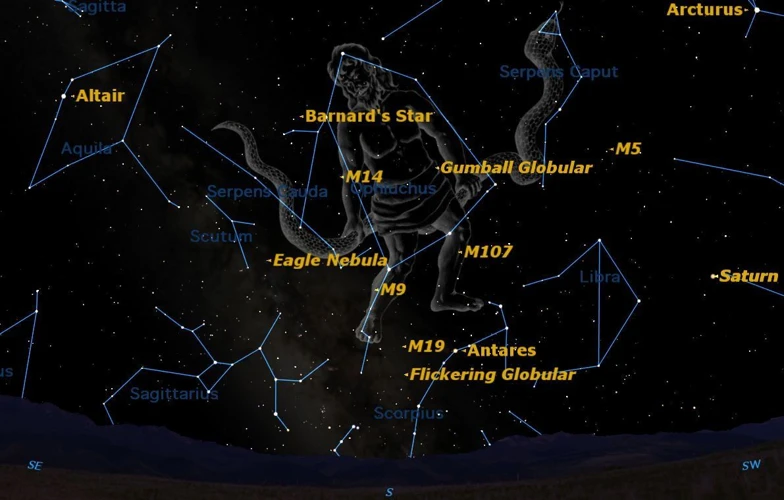
The link between astrology and astronomy is a subject that has intrigued scholars, philosophers, and curious minds throughout history. Both astrology and astronomy focus on the study of celestial bodies and their movements, but they diverge in their approaches and interpretations.
Astronomy, as a scientific discipline, seeks to understand the physical and mathematical aspects of the universe. It involves rigorous observation, measurement, and analysis to unravel the mysteries of the cosmos. Astronomers use advanced technologies such as telescopes and satellites to study the stars, planets, galaxies, and other astronomical phenomena.
Astrology, on the other hand, explores the belief that the positions and movements of celestial bodies can influence human behavior and personality traits. It is often regarded as a pseudoscience since it lacks empirical evidence and is not based on scientific principles. Astrologers interpret the positions of planets, stars, and other celestial objects to make predictions and offer insights about individuals and their lives.
Despite their differences, astrology and astronomy have a historical connection that dates back centuries. Early astronomers were often trained in astrology as well, with the two disciplines intertwined in the ancient world. The study of celestial bodies was considered essential for understanding natural phenomena and predicting events.
It’s important to note that while astrology and astronomy share common ground in their focus on the heavens, they approach their subject matter from distinct perspectives. Astronomy relies on scientific methods and evidence-based research, whereas astrology draws on ancient beliefs and interpretations.
In the following sections, we will delve deeper into the historical connection between astrology and astronomy, explore their similarities and differences in terms of celestial objects, movements, and patterns, as well as examine the scientific outlook on astrology. We’ll also discuss the impact of astrology on society and culture and address the ongoing debate surrounding its validity.
So let’s embark on this cosmic journey and unravel the intricate relationship between astrology and astronomy.
The Historical Connection
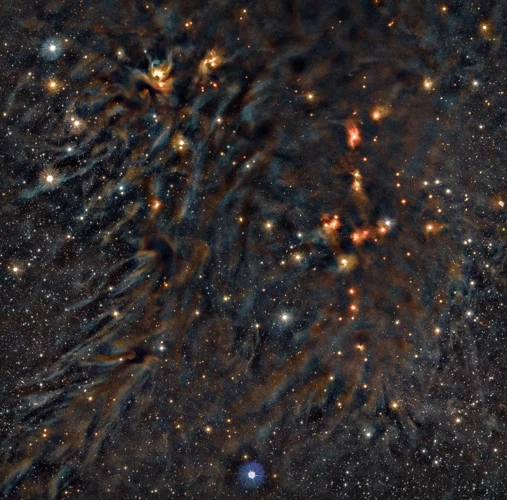
The historical connection between astrology and astronomy is deeply rooted in ancient civilizations and their quest to understand and interpret the celestial realm. In ancient times, astrology and astronomy were often intertwined, with early astronomers also practicing astrology.
One of the significant reasons for this connection lies in the belief that celestial bodies held great influence over human affairs. For instance, ancient civilizations like the Egyptians, Babylonians, and Greeks associated specific traits and characteristics with celestial objects, leading to the development of astrological systems.
Notably, the zodiac played a crucial role in connecting astrology and astronomy. The zodiac, a band of constellations along the ecliptic, provided a framework for understanding the relationship between celestial bodies and human life. Each zodiac sign represents certain personality traits and corresponds to specific periods of the year.
Astrologers and astronomers alike devoted considerable time to observing and studying the movements of celestial bodies to make predictions and interpretations. This shared focus allowed for the exchange of knowledge and ideas between the two disciplines.
Astrology and astronomy shared common tools and techniques. Ancient astronomers and astrologers used instruments such as astrolabes and quadrants to measure the positions of planets and stars accurately. These instruments helped scientists and practitioners calculate celestial events and make astrological predictions.
While astrology and astronomy were closely linked historically, their paths diverged during the Renaissance and the Age of Enlightenment. During this period, the scientific method gained prominence, and astronomy became more grounded in empirical observation and mathematical calculations.
Despite this divergence, the historical connection between astrology and astronomy remains significant. It showcases the human desire to decipher the mysteries of the universe and understand the interplay between celestial bodies and earthly affairs.
Astrological Observations by Early Astronomers
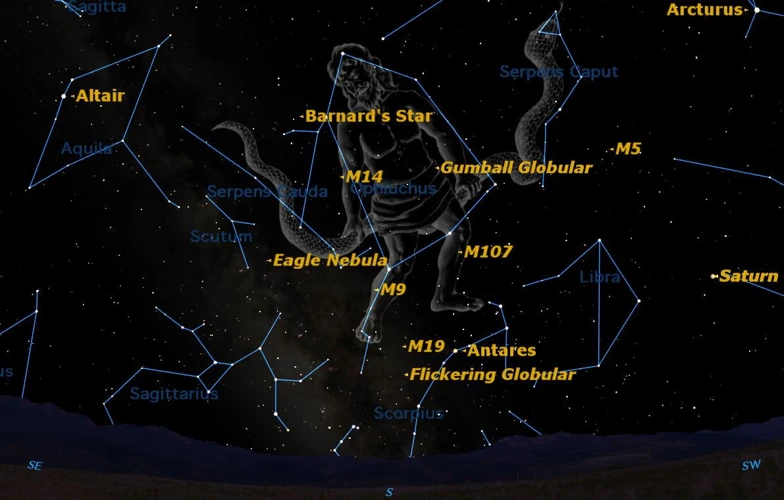
Early astronomers played a crucial role in the development of astrology as they observed and recorded the movements of celestial bodies in the night sky. In ancient civilizations like Mesopotamia, Egypt, Greece, and China, astronomers were also astrologers, combining their knowledge of the stars with the belief that these celestial events held significance for human lives.
One of the key astrological observations made by early astronomers was the connection between the positions of planets and the occurrence of significant events on Earth. They noticed that certain planetary alignments coincided with natural disasters, political upheavals, and other significant occurrences. This belief in planetary influences on human affairs laid the foundation for astrological predictions and interpretations.
For example, ancient Babylonian astronomers observed the movements of celestial bodies and developed a system of astrology known as horoscopic astrology. This system divided the skies into twelve equal zodiac signs, based on the constellations along the ecliptic, which is the apparent path of the Sun across the celestial sphere. They believed that the position of planets within these zodiac signs at the time of an individual’s birth could determine their personality traits and future experiences.
Similarly, ancient Chinese astronomers, known as astrologer-astronomers, noticed the cyclical nature of celestial events and developed the Chinese zodiac, which consists of twelve animal signs. Each year is associated with a specific animal sign based on the position of Jupiter in relation to the Chinese zodiac. These animal signs were believed to influence a person’s character and destiny.
These early astrologer-astronomers were essentially researchers, meticulously observing and recording celestial phenomena. Their astrological observations provided a framework for understanding and predicting events, both on Earth and in the heavens. While their methods may seem primitive by modern standards, their contributions laid the groundwork for the astrological practices that followed.
In the following sections, we will explore in more detail the similarities and differences between astrology and astronomy, including their approaches to celestial objects, movements, and patterns. We will also delve into the concept of the zodiac and constellations and their significance in astrology. So, let’s continue our journey through the intertwined worlds of astrology and astronomy.
Similarities and Differences
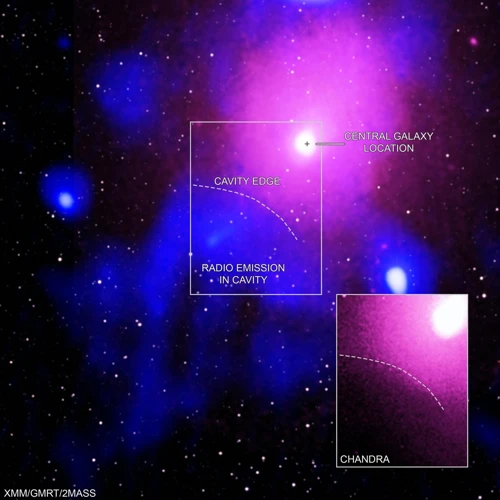
While astrology and astronomy both involve the study of celestial bodies and their movements, there are notable similarities and differences between these two fields.
Similarities:
- Astrology and astronomy both recognize the existence and significance of the sun, moon, and planets in the solar system.
- Both disciplines rely on the observation and study of celestial objects to understand various cosmic phenomena.
- Both astrology and astronomy take into account the positions and movements of celestial bodies to make predictions or gather insights.
- Historically, astronomy and astrology were intertwined, with early astronomers often practicing astrology as well.
Differences:
- In terms of methodology, astronomy is a scientific discipline that is based on empirical evidence, measurements, and mathematical calculations. It focuses on understanding the physical properties of celestial bodies and the laws that govern their behavior.
- Astrology, on the other hand, is often considered a pseudoscience and is not based on the scientific method. It relies on interpretations and beliefs regarding the influence of celestial bodies on human behavior and personality traits.
- Astronomy is widely recognized and accepted by the scientific community, while astrology is viewed with skepticism and often criticized by scientists.
- In astrology, phenomena such as the zodiac signs, astrological houses, and elements play a crucial role in making predictions and offering insights about individuals. These concepts have symbolic meanings and are not considered in astronomy as scientifically significant.
Understanding the similarities and differences between astrology and astronomy allows us to appreciate their respective approaches to the study of the cosmos and the role they play in shaping our understanding of the universe and our place within it.
1. Celestial Objects
In the realm of celestial objects, both astrology and astronomy focus on studying the stars, planets, and other cosmic entities. However, their interpretations and purposes differ significantly.
Astronomy: Astronomers analyze celestial objects with a scientific lens, aiming to comprehend their physical characteristics, composition, and behavior. They study stars, planets, galaxies, asteroids, comets, and other astronomical phenomena using tools such as telescopes, satellites, and spacecraft. By observing and measuring the properties of these objects, astronomers can determine their distances, sizes, temperatures, and luminosities. They explore the processes that drive celestial bodies, such as nuclear fusion in stars or gravitational interactions between planets and their moons. Astronomy’s focus is on uncovering the mysteries of the universe through empirical research and mathematical calculations.
Astrology: In astrology, celestial objects hold symbolic significance rather than being subjects of scientific inquiry. Astrologers associate different celestial bodies with specific meanings and interpretations. For example, the Sun is often seen as a representation of vitality and individuality, while the Moon is linked to emotions and intuition. The planets, including Mercury, Venus, Mars, Jupiter, Saturn, Uranus, Neptune, and Pluto, are considered influential factors in shaping personality traits and influencing life events. Each celestial object’s position at the time of a person’s birth is said to have a unique influence on their character and destiny according to astrological beliefs. While astrology sees celestial objects as sources of cosmic energy that can affect human lives, it does not explore their physical properties or scientific nature.
It is important to note that astrology assigns additional significance to certain celestial bodies beyond those recognized in traditional astronomy. For example, astrology assigns importance to the nodes of the Moon, which are not widely studied in astronomy but play a role in astrological interpretations.
Understanding the distinction between the approach of astrology and astronomy towards celestial objects helps clarify the fundamental divergence between the two disciplines.
2. Movements and Patterns
The movements and patterns of celestial bodies are an integral part of both astrology and astronomy, shaping their understanding of the cosmos. However, the significance and interpretation of these movements and patterns differ between the two disciplines.
In astronomy, the study of celestial movements focuses on understanding the physical laws and forces that govern the motion of planets, stars, and other celestial objects. Astronomers use mathematical models and observations to track the positions of celestial bodies and predict their future locations. This understanding of movements and patterns is fundamental to studying astronomical phenomena such as planetary orbits, eclipses, and meteor showers.
On the other hand, in astrology, the movements of celestial bodies hold symbolic meaning. Astrologers track the positions of the Sun, Moon, planets, and other celestial objects to interpret their influence on individuals and events on Earth. They believe that these movements create energetic alignments that can impact human behavior and shape personal characteristics.
For example, astrologers study the movement of the Sun through the twelve zodiac signs over the course of a year. Each zodiac sign is associated with certain qualities and characteristics that are believed to influence individuals born during that time. The interpretation of these movements and patterns forms the basis of horoscopes and astrological predictions.
It’s important to note that while astronomy focuses on objective observations and scientific analysis, astrology relies on subjective interpretations and beliefs. The movements and patterns observed by astronomers serve as a basis for greater scientific understanding, while astrologers interpret these movements in a symbolic and metaphysical context.
By exploring the various movements and patterns of celestial bodies, both astronomy and astrology offer unique perspectives on the universe and our place within it. These differing approaches contribute to a rich tapestry of knowledge and continue to fascinate those who seek a deeper understanding of the cosmos.
3. Zodiac and Constellations
When exploring the relationship between astrology and astronomy, one cannot overlook the connection between the zodiac and constellations. The zodiac is an astrological concept that divides the celestial sphere into twelve equal parts, each represented by a specific constellation. These constellations, known as the zodiac signs, hold significance in astrology as they are believed to influence personality traits and shape individual destinies.
The zodiac signs are based on the constellations that lie along the ecliptic, the apparent path of the Sun across the sky throughout the year. The constellations traditionally associated with the zodiac signs include Aries, Taurus, Gemini, Cancer, Leo, Virgo, Libra, Scorpio, Sagittarius, Capricorn, Aquarius, and Pisces.
Each zodiac sign is typically represented by a symbol and is believed to embody specific qualities and characteristics. For example, Aries is associated with courage and leadership, while Taurus is linked to stability and determination. These interpretations have been developed over time through the observation of celestial patterns and their supposed influences on human behavior.
It is worth mentioning that the alignment between the zodiac signs and the actual constellations has gradually shifted over centuries due to a phenomenon called precession. Precession refers to the slow wobbling of the Earth’s axis, causing the position of the equinoxes to move along the ecliptic. This shift has led to a discrepancy between the zodiac signs and the current positions of the corresponding constellations.
In astrology, each zodiac sign is also associated with one of the four classical elements: fire, earth, air, and water. This elemental connection adds another layer of significance to the zodiac signs and further influences the interpretation of astrological charts and horoscopes. To explore the connection between the elements and the zodiac signs, you can read more about it here.
The origins of the zodiac and its symbolism can be traced back to various mythological traditions and cultures. The stories behind the zodiac signs provide rich narratives that reflect the human desire to find meaning in the stars. To learn more about the mythological origins of the zodiac, you can visit our article on the subject here.
While many people are familiar with their sun sign, determined by the position of the Sun at the time of their birth, astrology also takes into account the positions of the other planets and celestial bodies. Astrological houses play a significant role in interpreting an individual’s natal chart and providing insights into different areas of life. To unravel the mysteries behind the astrological houses, you can read more about it here.
The connection between the zodiac and constellations is a fundamental aspect of astrological practice, intertwining ancient beliefs, celestial observations, and symbolic interpretations. It is a fascinating realm where the boundaries of science and mythology blur, inviting contemplation and reflection.
Scientific Outlook on Astrology
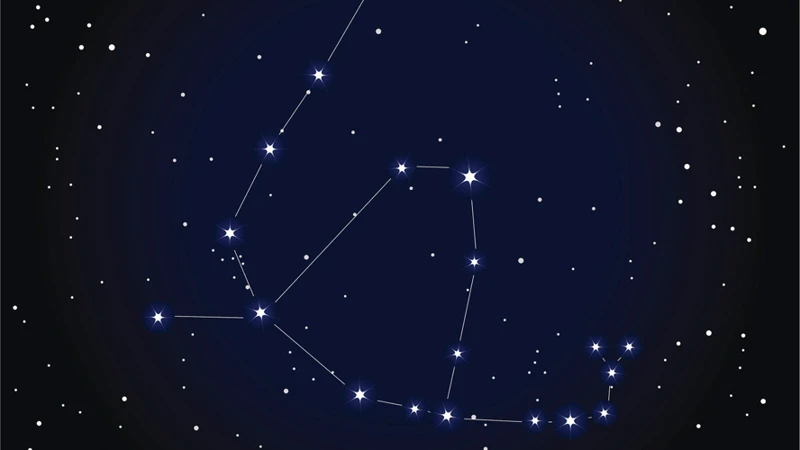
1. Astronomy as a Basis
Astronomy serves as a basis for understanding the physical properties and behavior of celestial bodies. Its scientific approach relies on empirical evidence, mathematical calculations, and precise measurements. By studying the movements, compositions, and interactions of stars, planets, and other astronomical objects, astronomers uncover the fundamental laws governing the universe.
Astronomy provides valuable insights into the formation of galaxies, the life cycles of stars, and the dynamics of planetary systems. Through telescopes and space probes, scientists can observe distant celestial objects and analyze the light and radiation emitted by them. This data is crucial for determining the age, chemical composition, and physical properties of stars and planets.
Astronomy also plays a vital role in our understanding of the cosmos on a larger scale. By studying the cosmic microwave background radiation, astronomers have gained insights into the early stages of the universe, supporting the Big Bang theory. Additionally, astronomers use techniques such as spectroscopy to analyze the light emitted by celestial objects, enabling them to identify the presence of various elements and molecules.
The field of astronomy contributes to other scientific disciplines, such as astrophysics and cosmology. Astrophysics combines the principles of physics and astronomy to investigate phenomena such as black holes, supernovae, and the nature of dark matter and dark energy. Cosmology, on the other hand, seeks to understand the origin, structure, and evolution of the universe as a whole.
While astrology draws inspiration from astronomy, it is important to distinguish between the two. Astronomy focuses on the scientific study of celestial objects, while astrology delves into the interpretation of celestial events and their supposed influence on human life. Despite this distinction, historical ties between the two fields remain strong, and the foundations provided by astronomy continue to shape our understanding of the cosmos.
2. Astrology as Pseudo-Science
Astrology is often regarded as a pseudo-science due to its lack of empirical evidence and scientific foundation. While astronomy relies on rigorous observation, measurement, and mathematical models to understand the universe, astrology is based on ancient beliefs and interpretations passed down through generations.
One of the key criticisms of astrology is the concept of causality. Astrology suggests that the positions of celestial bodies at the time of a person’s birth can influence their personality traits and future events. However, there is no scientifically proven mechanism that can explain how planetary positions can have such a direct impact on individual lives.
Another aspect that contributes to astrology being labeled as a pseudo-science is its inability to produce consistent results. Different astrologers may provide conflicting interpretations or predictions for the same birth chart, highlighting the subjectivity and lack of a standardized approach in astrology.
Astrology often relies on generalizations and broad statements that can apply to a large number of people. Horoscopes, for example, are based on the twelve zodiac signs and are typically written in a way that allows readers to find relevance in them, regardless of their actual accuracy or specificity.
Despite these criticisms, astrology continues to have a significant following and influence in modern society. Many individuals find comfort and meaning in astrology, using it as a tool for self-reflection, guidance, and understanding.
It’s important to distinguish between astrology and science, as they serve different purposes and operate on different principles. While astronomy focuses on the objective study of the universe, astrology deals with subjective interpretations and the belief in celestial influences on human lives.
Astrology, as a pseudo-science, remains a topic of debate and controversy. While some dismiss it as mere superstition, others find value in its symbolic and metaphorical interpretations. The ongoing discussion surrounding astrology highlights the complex relationship between science, belief systems, and human nature.
3. Modern Research and Criticism
In modern times, there has been ongoing research and criticism surrounding astrology. While many people still find comfort and meaning in astrology, scientists and skeptics continue to question its validity and scientific basis.
One area of modern research involves the examination of astrology’s claims and predictions. Several studies have been conducted to test the accuracy of astrological readings and horoscopes. These studies often employ statistical analysis to determine whether there is a correlation between astrological predictions and actual events or personality traits. However, the results have been largely inconclusive, with many suggesting that any apparent accuracy could be attributed to chance or subjective interpretation.
Critics argue that astrology lacks a plausible mechanism for how celestial bodies could influence human behavior. They point out that the gravitational forces exerted by distant stars and planets are very weak compared to other factors that shape human lives, such as genetics and environment. Additionally, astrology’s reliance on generalizations and broad statements leaves room for subjective interpretation, making it difficult to test its claims scientifically.
Another source of criticism comes from the standpoint of psychology. Some psychologists argue that astrology’s popularity stems from a human tendency to seek patterns, meaning, and guidance. They suggest that people may resonate with astrological readings because of a phenomenon known as the “Barnum effect” or the “Forer effect,” where individuals tend to accept vague and general statements as highly accurate descriptions of themselves.
Despite the criticism, astrology continues to play a cultural and social role in many societies. People turn to astrology to gain insight into themselves and their relationships, finding comfort in the belief that the stars may hold answers to life’s mysteries.
Modern research and criticism surrounding astrology highlight the divide between its believers and skeptics. While scientific evidence has not supported astrology’s claims, its popularity and enduring presence in society suggest that its appeal goes beyond scientific validation. As we continue to explore the link between astrology and astronomy, it is essential to approach the subject with an open mind and consider the diverse perspectives that shape our understanding of the universe and human existence.
Impact on Society and Culture
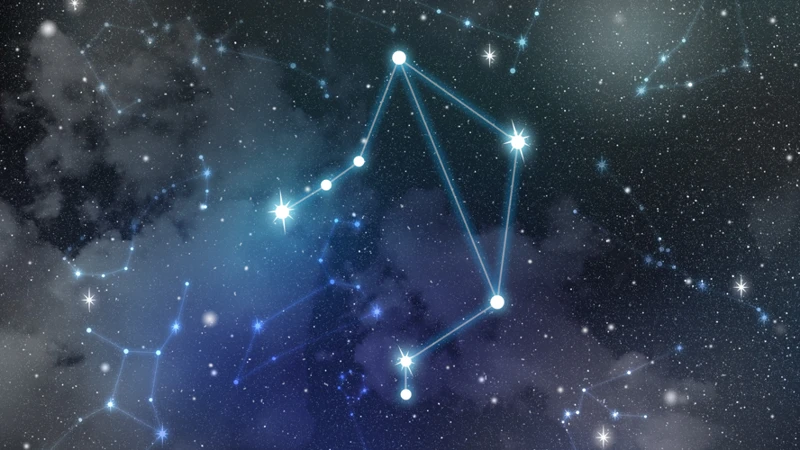
Astrology has had a profound impact on society and culture throughout history. Its influence can be seen in various aspects of life, ranging from art and literature to personal beliefs and decision-making.
One significant impact of astrology is its role in shaping people’s identities and sense of self. Many individuals identify strongly with their zodiac sign and believe that it reflects their personality traits and characteristics. Astrology provides a framework for self-reflection and self-discovery, allowing individuals to explore their strengths, weaknesses, and potentials.
Astrology also plays a role in relationships and compatibility. Many people consult astrological compatibility charts to determine the compatibility between themselves and their romantic partners, friends, or colleagues. The belief in astrological compatibility can influence relationship dynamics and decision-making processes.
Additionally, astrology has woven itself into the fabric of cultural practices and traditions. In many societies, astrology is deeply integrated into festivals, rituals, and ceremonies. For example, in India, astrology plays a prominent role in marriages, where astrological charts are matched to ensure a harmonious union. Similarly, Chinese astrology is a central aspect of Chinese New Year celebrations, with each year associated with an animal sign.
Astrology has found its way into mainstream media and entertainment. Horoscopes, which offer predictions and advice based on zodiac signs, are commonly found in newspapers, magazines, and online platforms. They have become a form of entertainment for many, even for those who may not necessarily believe in astrology.
While astrology’s impact is undeniable, it is important to recognize that its validity is a subject of ongoing debate and skepticism within the scientific community. Critics argue that astrology lacks scientific evidence and relies on generalizations and subjective interpretations. However, for many individuals, astrology provides guidance, comfort, and a sense of belonging.
Astrology’s impact on society and culture is multifaceted. It influences personal beliefs, relationships, cultural practices, and even forms of entertainment. Whether seen as a pseudoscience or a meaningful tool for self-reflection, astrology continues to captivate and shape the way we perceive ourselves and the world around us.
The Ongoing Debate
The relationship between astrology and astronomy has been a topic of debate for many years, with differing opinions and perspectives on the validity and scientific basis of astrology. The ongoing debate revolves around several key points:
- Scientific Basis: Astronomers argue that astrology lacks a scientific basis because it relies on the belief that celestial bodies can influence human behavior and personality traits. They argue that there is no empirical evidence to support this claim and that astrology is based more on personal interpretation and subjective beliefs.
- Predictive Accuracy: Critics of astrology often question its predictive accuracy. They argue that astrology’s predictions are often vague and open to interpretation, making it difficult to determine whether they are accurate or merely coincidental. Skeptics argue that any perceived accuracy is due to psychological factors such as confirmation bias or the Barnum effect, where general statements are perceived as accurate and applicable to oneself.
- Confirmation Bias: Another point of contention in the debate is the role of confirmation bias. Astrology enthusiasts may selectively focus on information that confirms their beliefs and ignore contradictory evidence. Critics argue that people often interpret astrology in a way that confirms their preexisting beliefs or desires, leading to a self-fulfilling prophecy rather than genuine predictive power.
- Statistical Significance: Skeptics also question the statistical significance of astrological predictions. They argue that the results are no better than what would be expected by chance alone. Critics point out the lack of rigorous scientific studies that demonstrate a clear and consistent relationship between astrological positions and specific personality traits or events.
The ongoing debate between astrology and astronomy continues to intrigue and divide individuals. While some firmly believe in the power and accuracy of astrology, others view it as nothing more than pseudoscience. As with many debates, differing beliefs and personal experiences form the foundation for these contrasting perspectives.
It is worth noting that there have been recent attempts to bridge the gap between astrology and science by conducting research studies on astrology’s potential impacts. However, the results remain inconclusive, with some studies claiming to find correlations while others dismiss them as coincidental or methodologically flawed.
Ultimately, the ongoing debate surrounding astrology and its relationship with astronomy reflects the contrasting views society holds on the intersection of science, belief systems, and personal experiences. While astrology continues to be a subject of fascination and curiosity for many, its position in the realm of scientific understanding remains a contentious topic.
Conclusion
In conclusion, the link between astrology and astronomy is a complex and fascinating subject. While both disciplines involve the study of celestial bodies, they differ in their approaches and interpretations. Astronomy is firmly rooted in scientific principles, utilizing observation, measurement, and analysis to understand the universe. Astrology, on the other hand, is viewed as a pseudoscience, as it lacks empirical evidence and relies on ancient beliefs.
Throughout history, astrology and astronomy have been intertwined, with early astronomers often incorporating astrological observations into their work. However, as scientific methods advanced, astronomy emerged as a separate and respected field of study.
The impact of astrology on society and culture cannot be underestimated. It has influenced art, literature, and even daily life, as people consult horoscopes and seek guidance based on astrological beliefs. However, the validity of astrology remains a topic of debate and criticism within the scientific community.
Ultimately, the understanding and acceptance of astrology and astronomy are subjective. While astronomy provides a scientific understanding of the universe, astrology offers a more personal and introspective perspective on one’s place in the cosmos. Whether one chooses to embrace astrology as a guiding force or view it as mere entertainment is a matter of personal belief.
As we continue to explore the vastness of the universe, the duality of astrology and astronomy will likely persist. Both disciplines contribute to our understanding of the cosmos, and their relationship serves as a reminder of the enduring fascination humans have with the celestial realm.
So, whether you consult the stars for guidance or marvel at the wonders of the universe through a telescope, the connection between astrology and astronomy is a reminder of the beauty and complexity of our universe.
Frequently Asked Questions
1. What is the main difference between astrology and astronomy?
Astrology is the belief that celestial bodies can influence human behavior, while astronomy is a scientific discipline that focuses on the observation and study of the universe.
2. Was astrology considered a science in ancient times?
Astrology was indeed considered a science in ancient times, as it was closely linked to the study of celestial bodies and their movements. However, it is now regarded as a pseudoscience.
3. How do astronomers observe celestial bodies?
Astronomers use advanced technologies such as telescopes, satellites, and observatories to observe celestial bodies. They analyze the light emitted or reflected by these objects to gather data and gain insights into their composition and behavior.
4. Can astrology accurately predict the future?
There is no scientific evidence to support the claim that astrology can accurately predict the future. Astrological predictions are based on interpretations and generalizations, rather than concrete evidence or scientific principles.
5. Are there any similarities between astrology and astronomy?
Both astrology and astronomy share a common focus on celestial bodies. They both seek to understand and explore the mysteries of the universe, although their approaches and interpretations differ.
6. What is the zodiac, and how is it related to astrology?
The zodiac is a belt of twelve equal divisions or signs that are based on the Earth’s annual path around the Sun. In astrology, the zodiac is used to predict and analyze personality traits, relationships, and future events.
7. Can astrology be considered a reliable source of information?
From a scientific standpoint, astrology cannot be considered a reliable source of information. Its predictions and interpretations are subjective and lack empirical evidence.
8. What is the scientific consensus on astrology?
The scientific consensus is that astrology is a pseudoscience. There is no scientific evidence to support the claims made by astrology, and it does not adhere to the rigorous standards of scientific inquiry.
9. How has astrology influenced art and literature?
Astrology has had a significant influence on art and literature throughout history. It has inspired paintings, sculptures, poems, and stories, with artists and writers often incorporating zodiac symbols and astrological themes in their works.
10. Can studying astronomy enhance our understanding of the universe?
Absolutely! Studying astronomy allows us to expand our knowledge and gain insights into the vastness and complexity of the universe. It helps us comprehend the laws of nature and our place within the cosmos.








